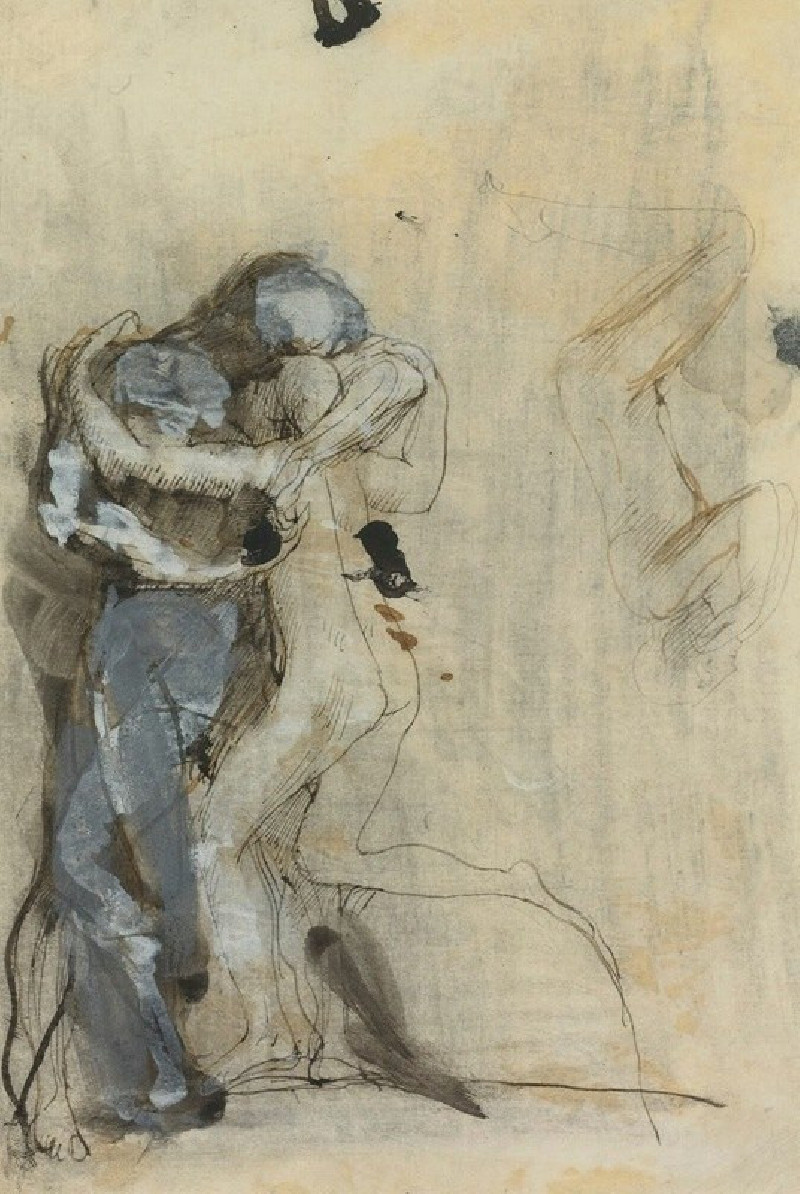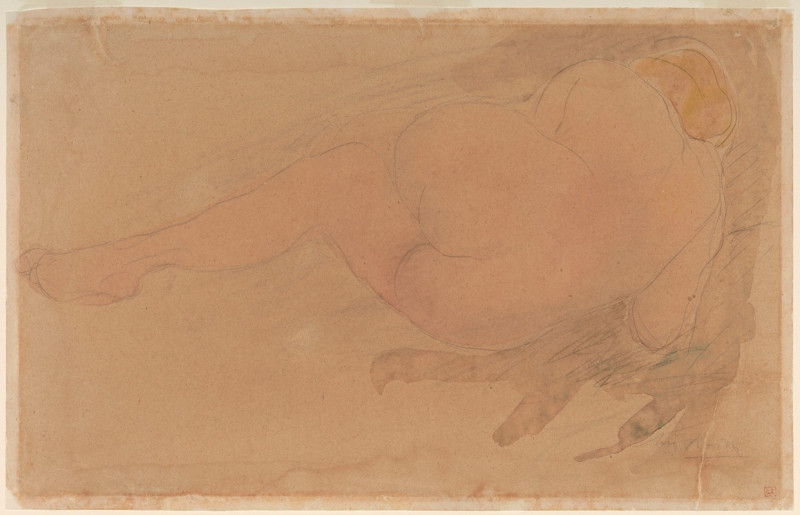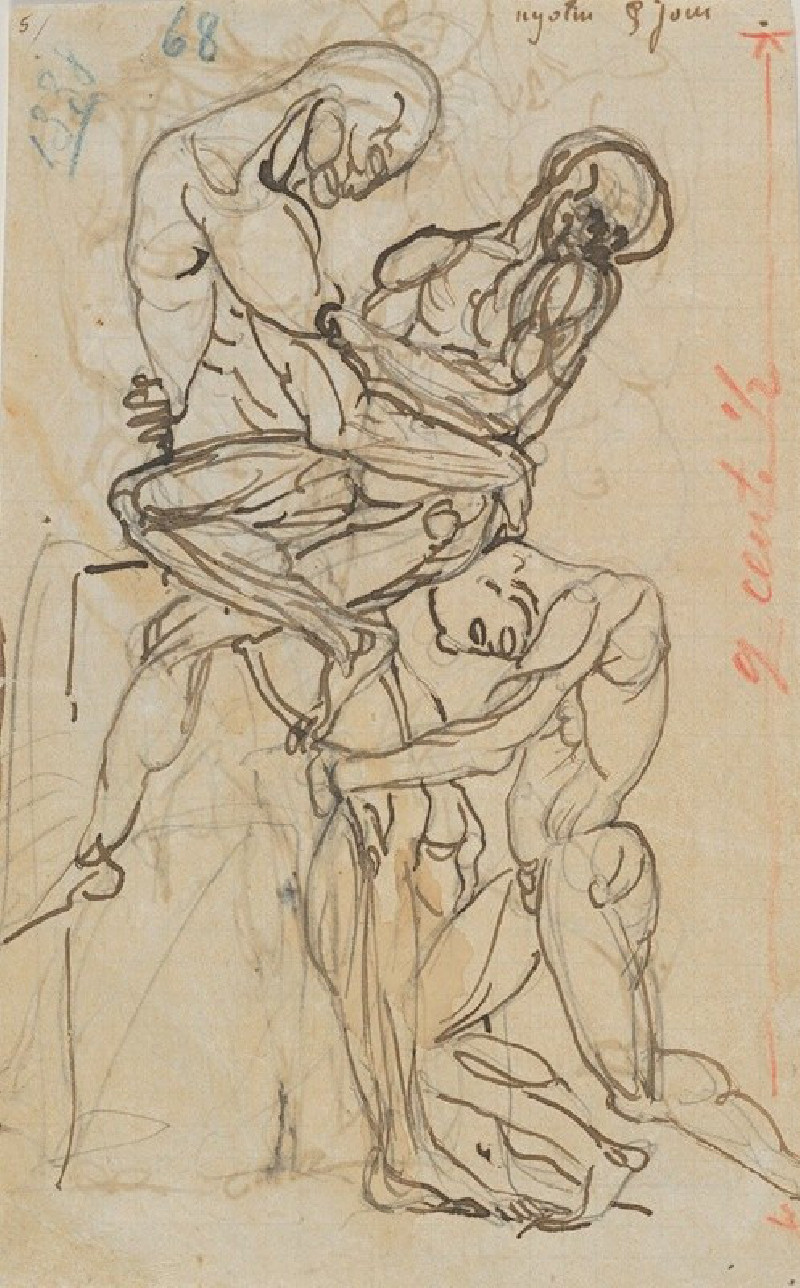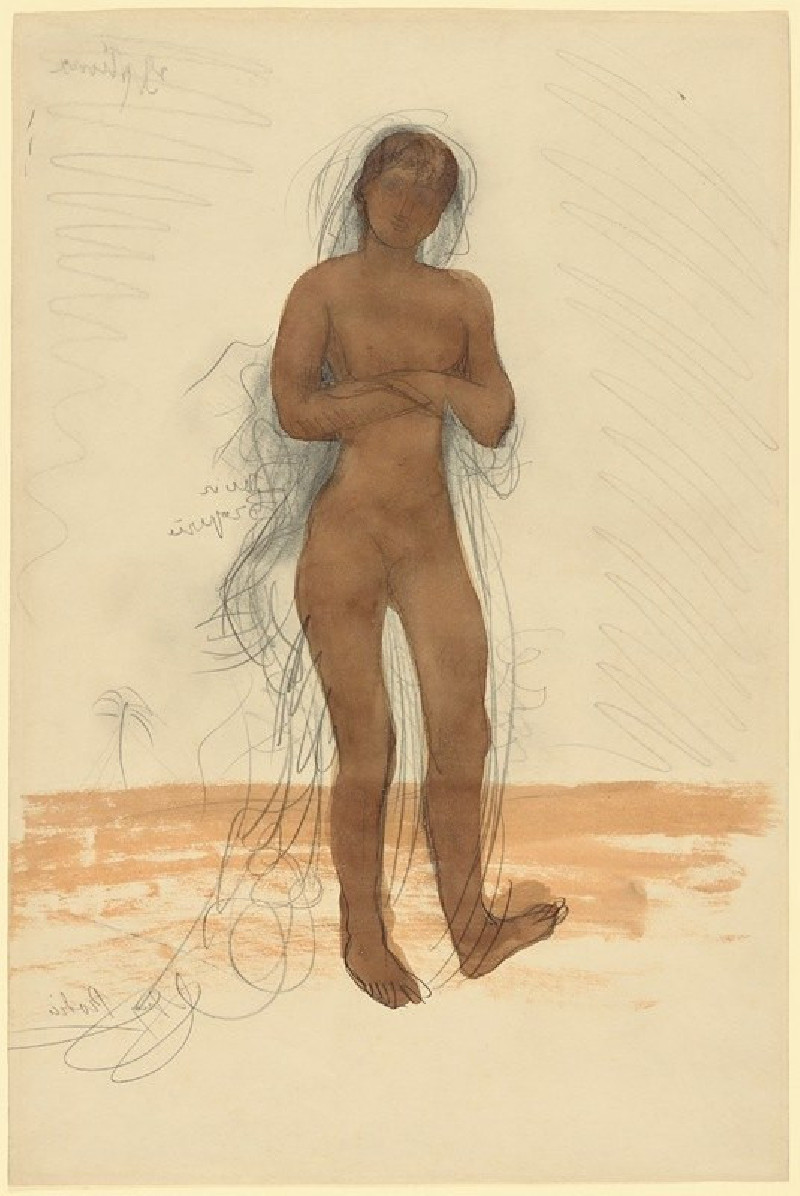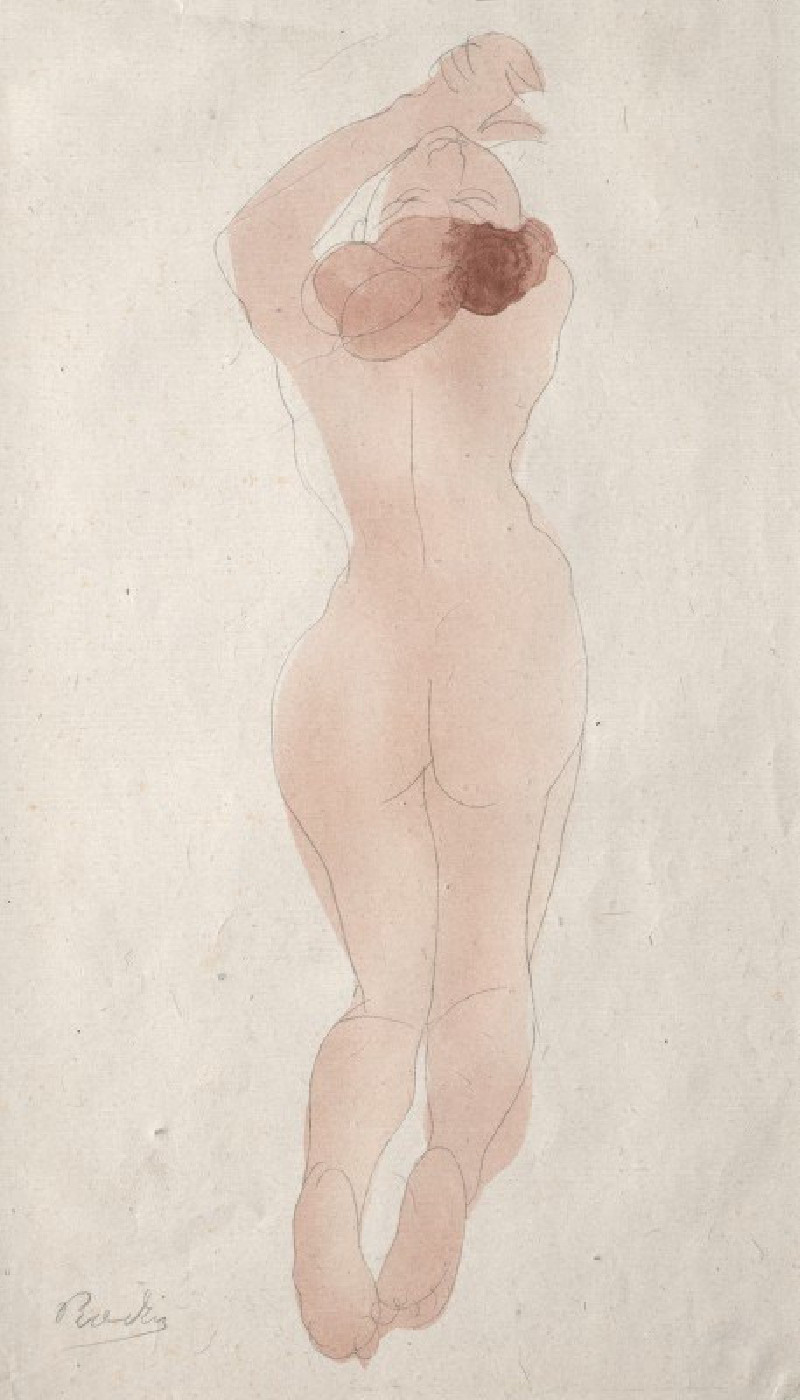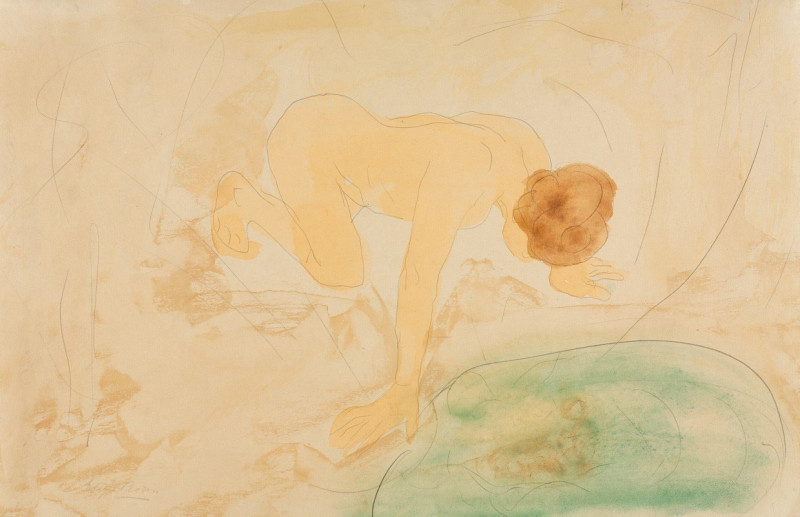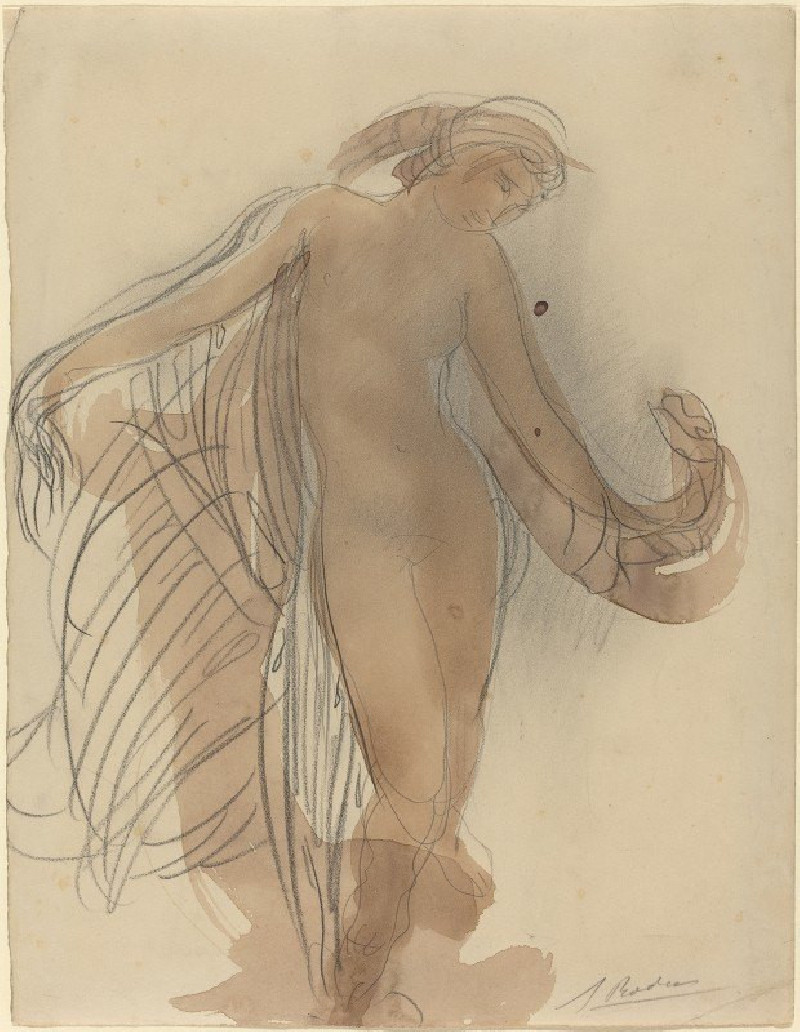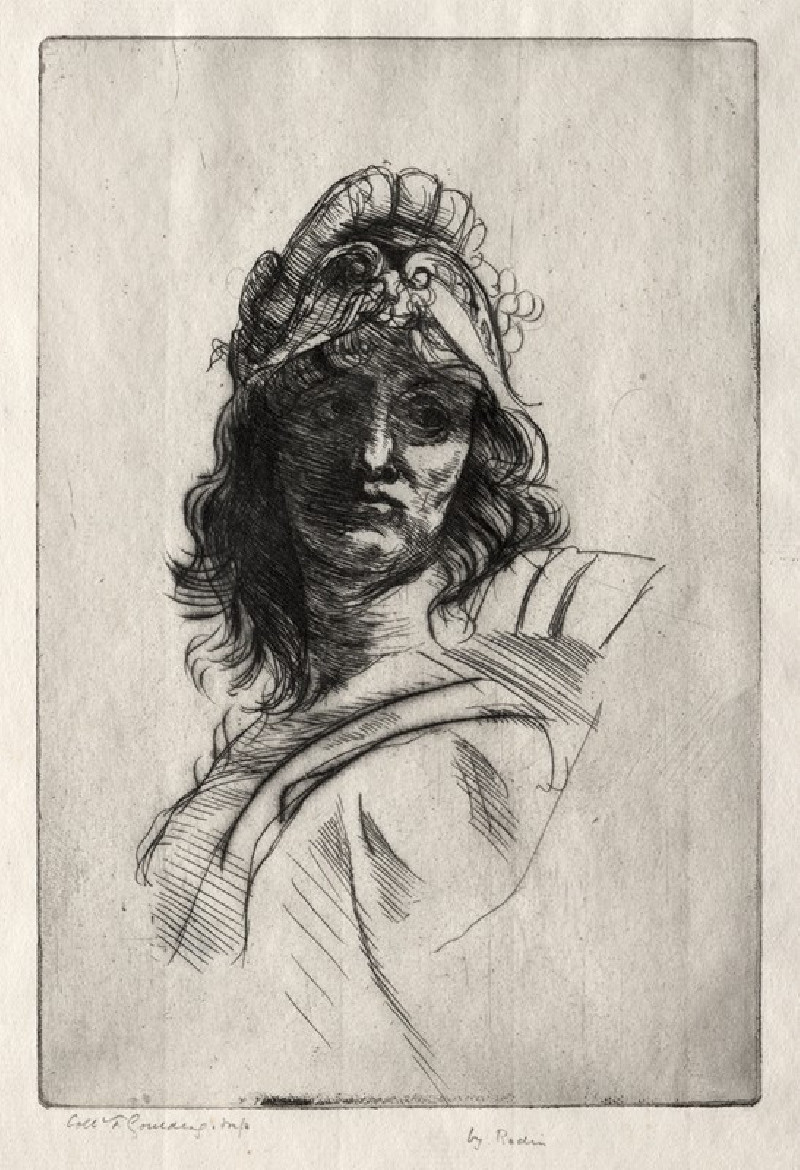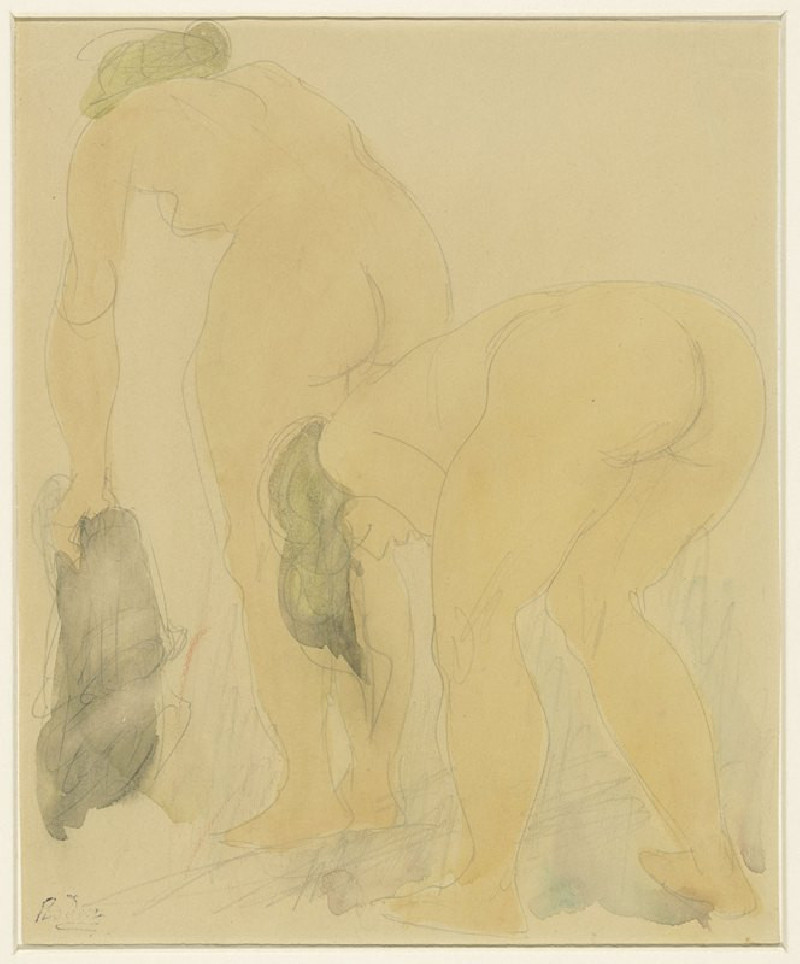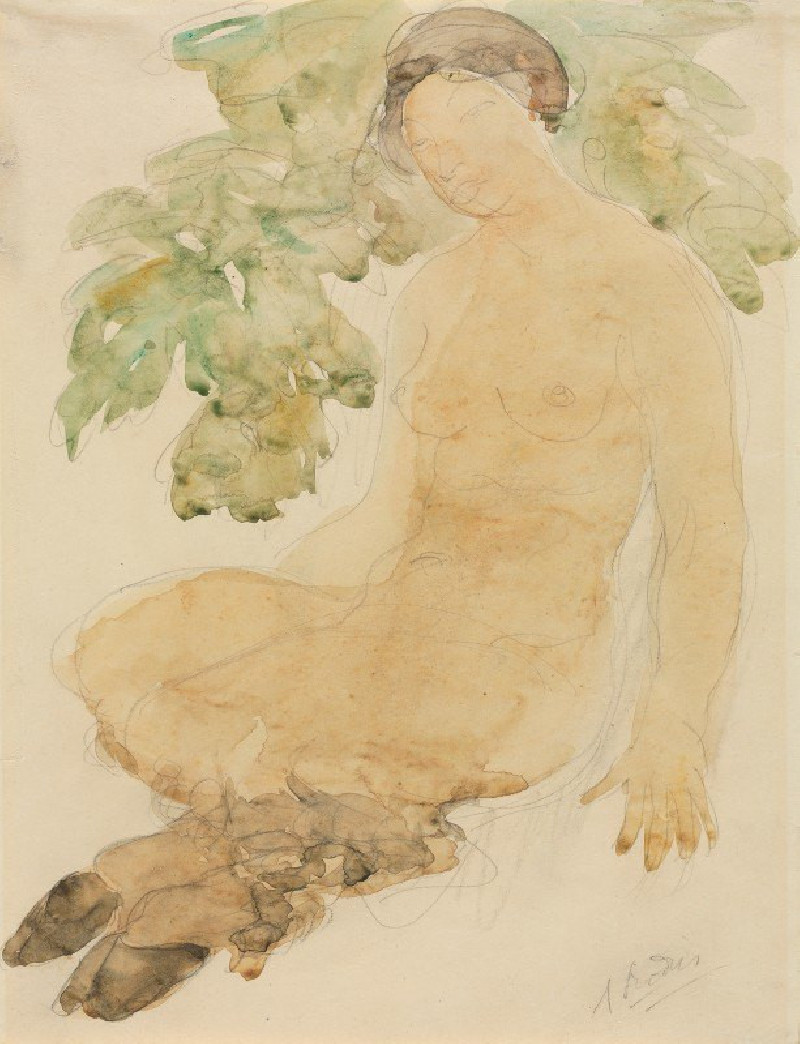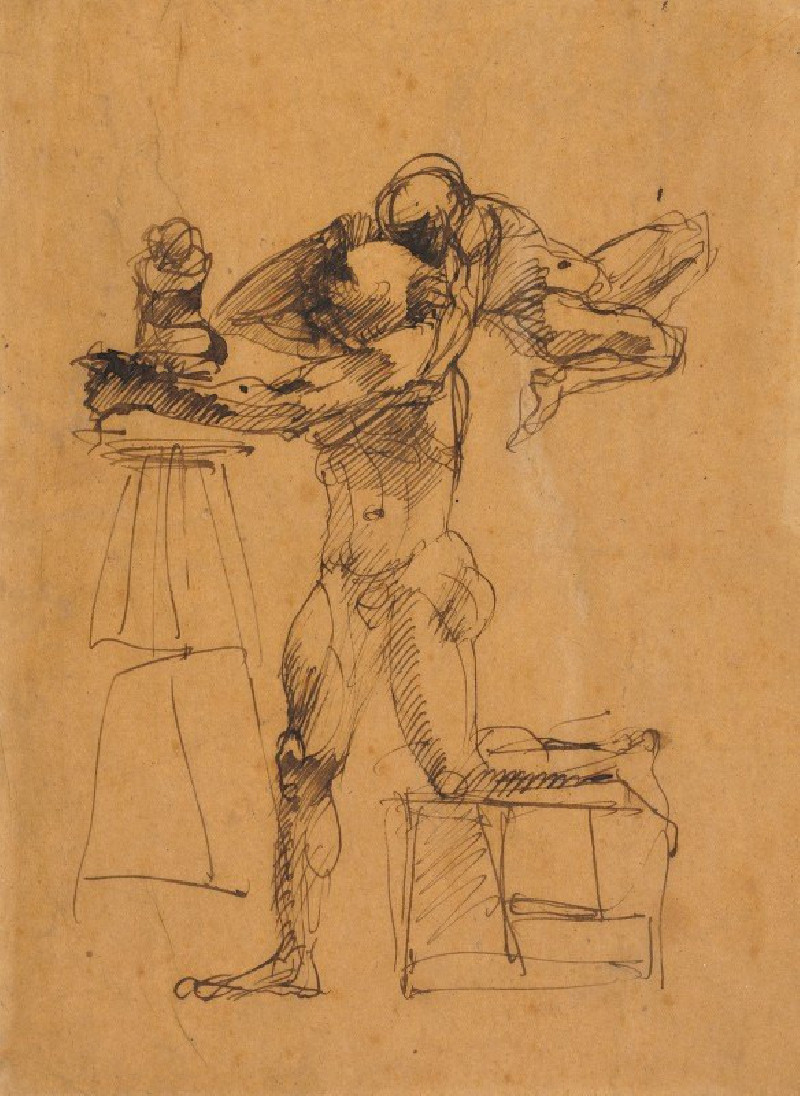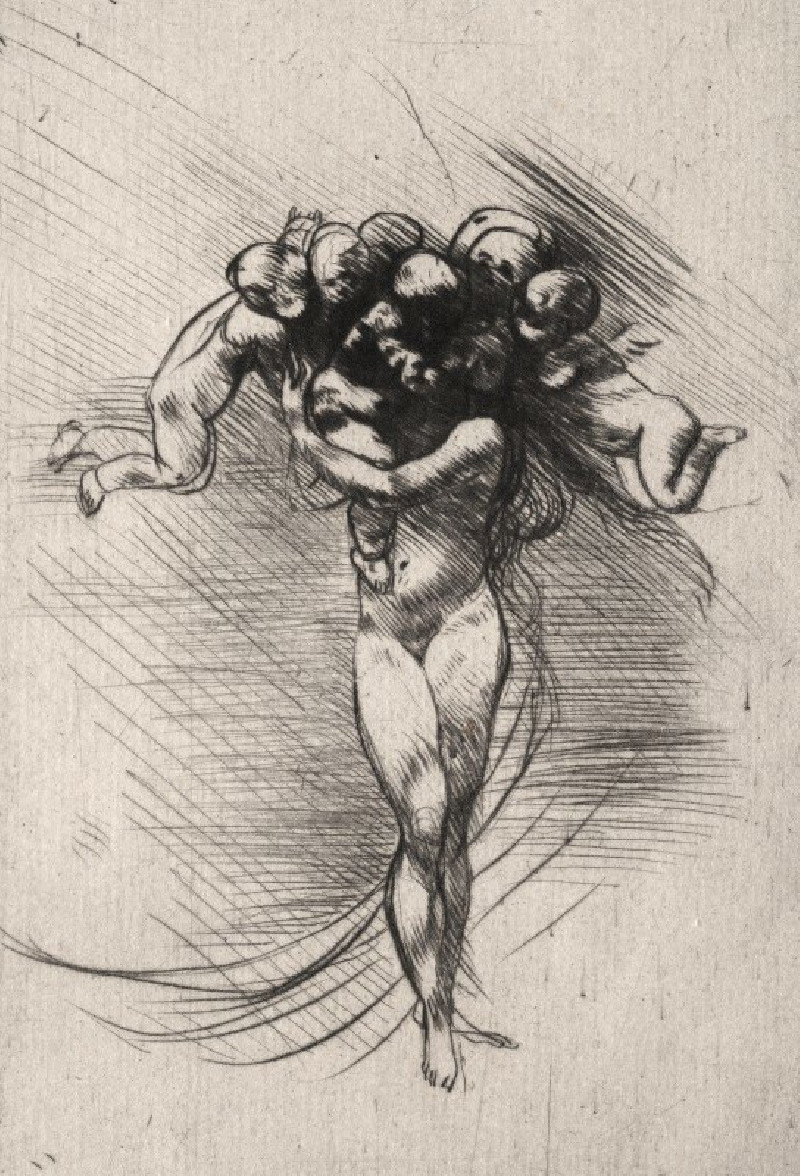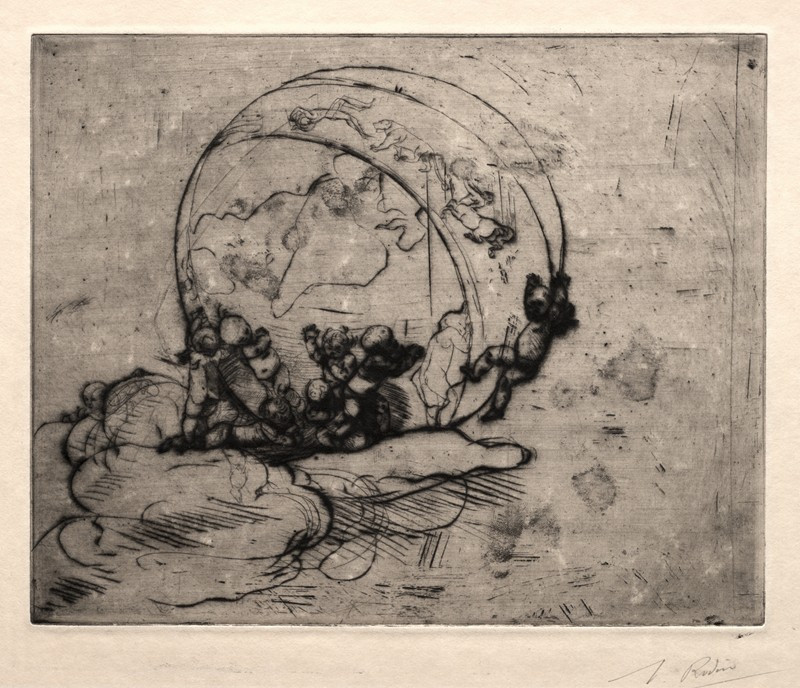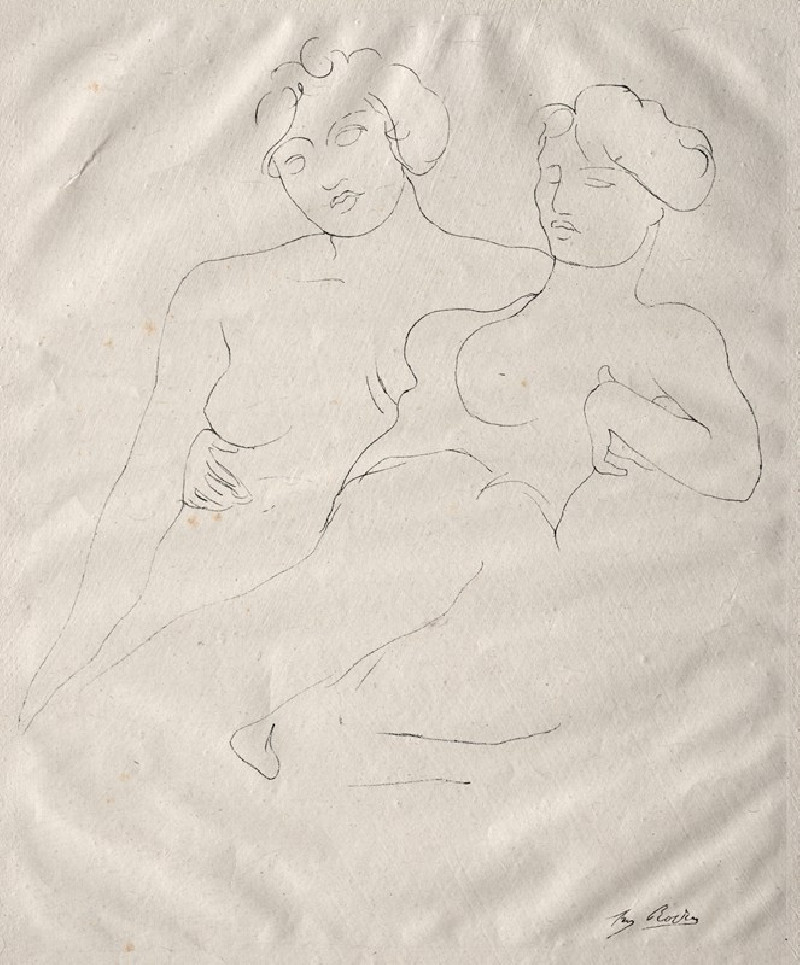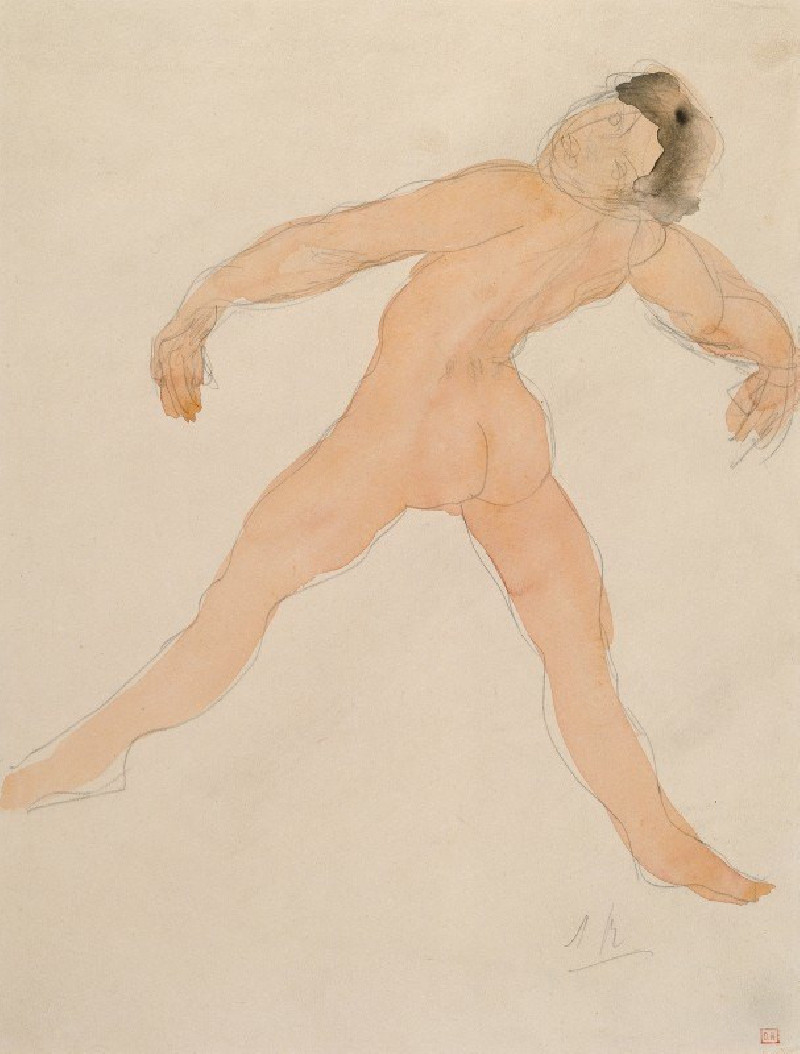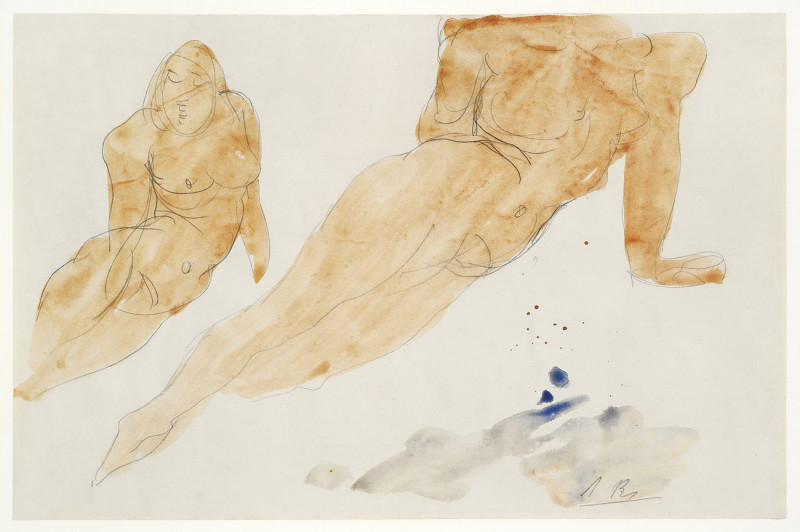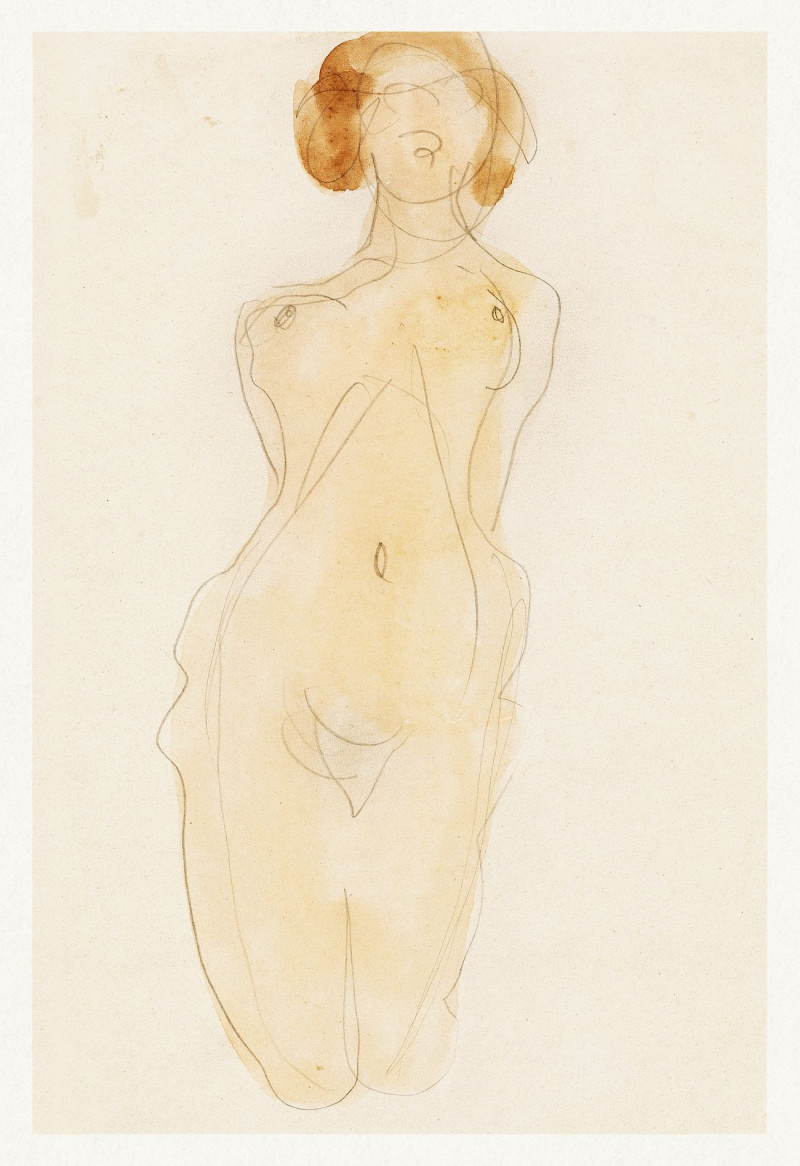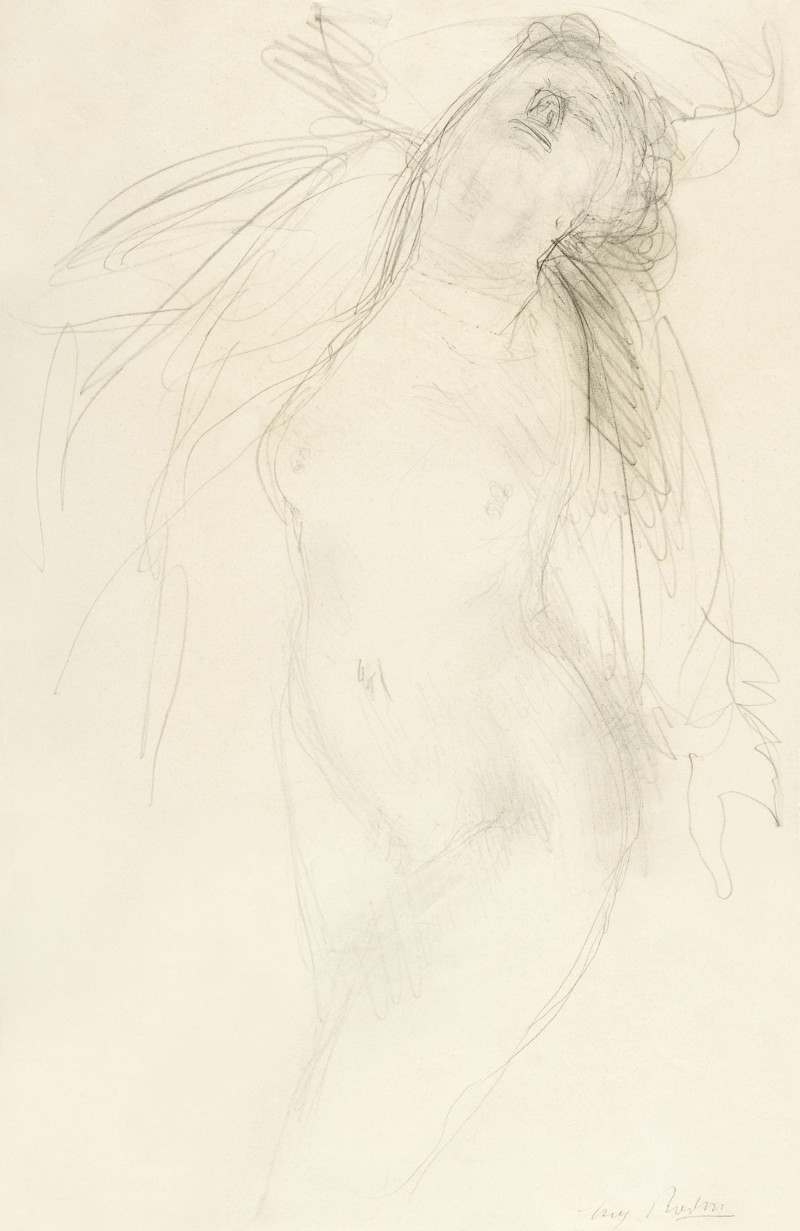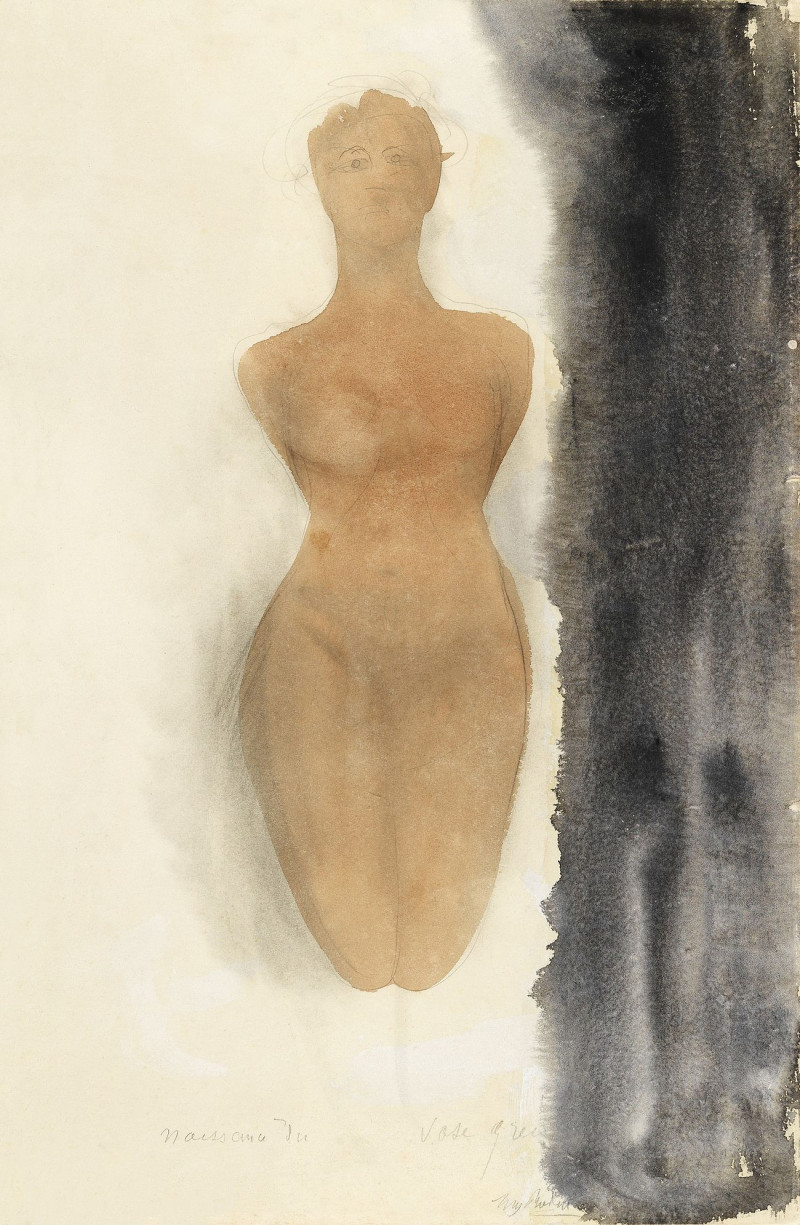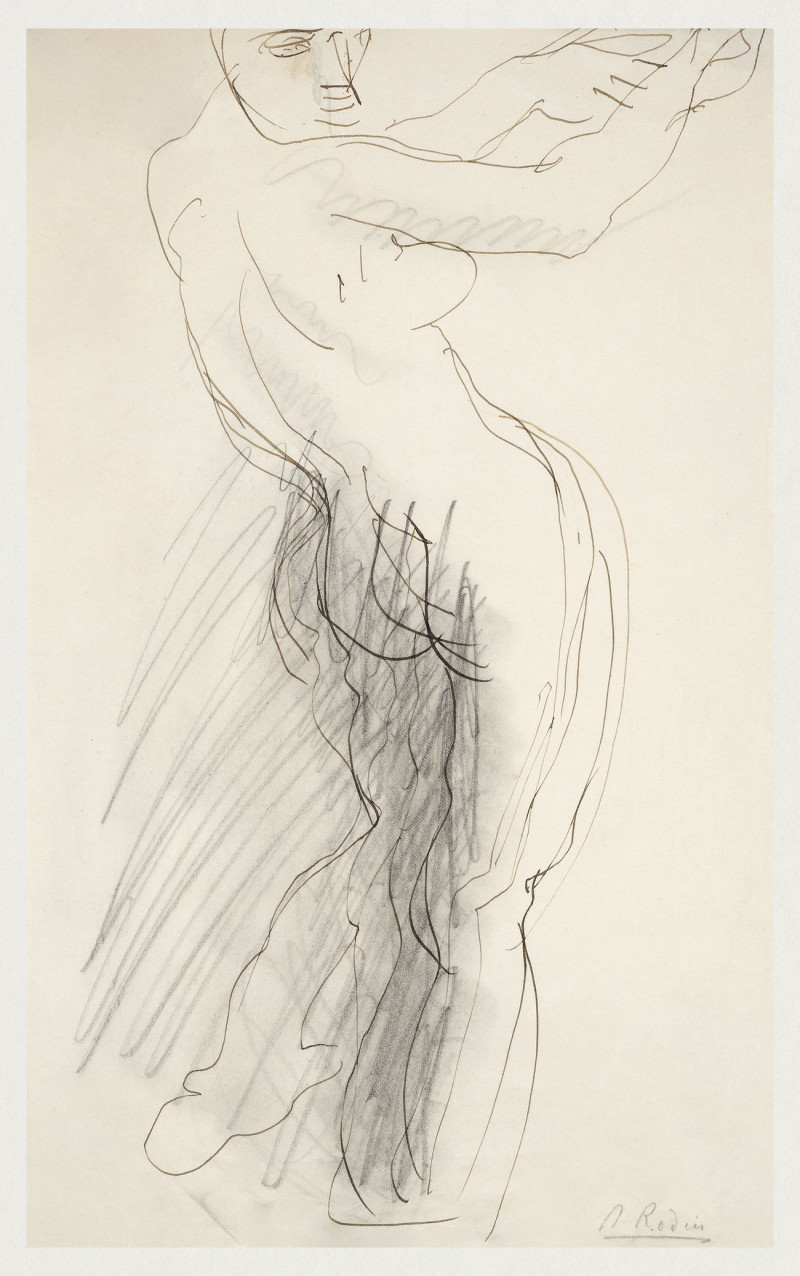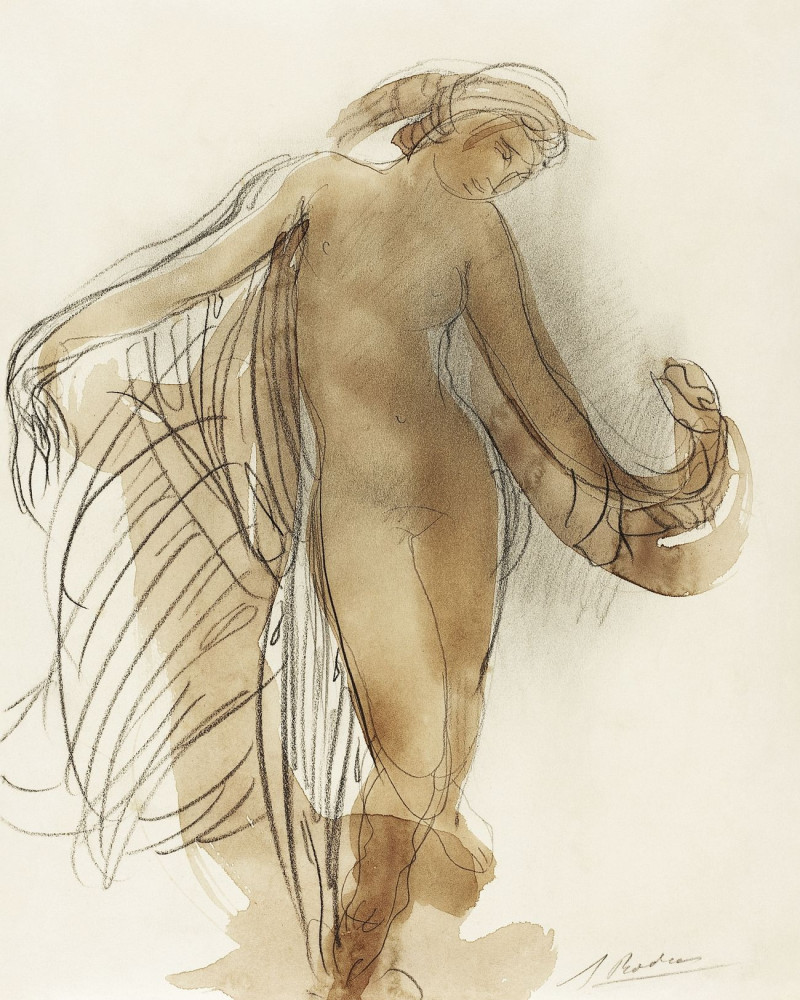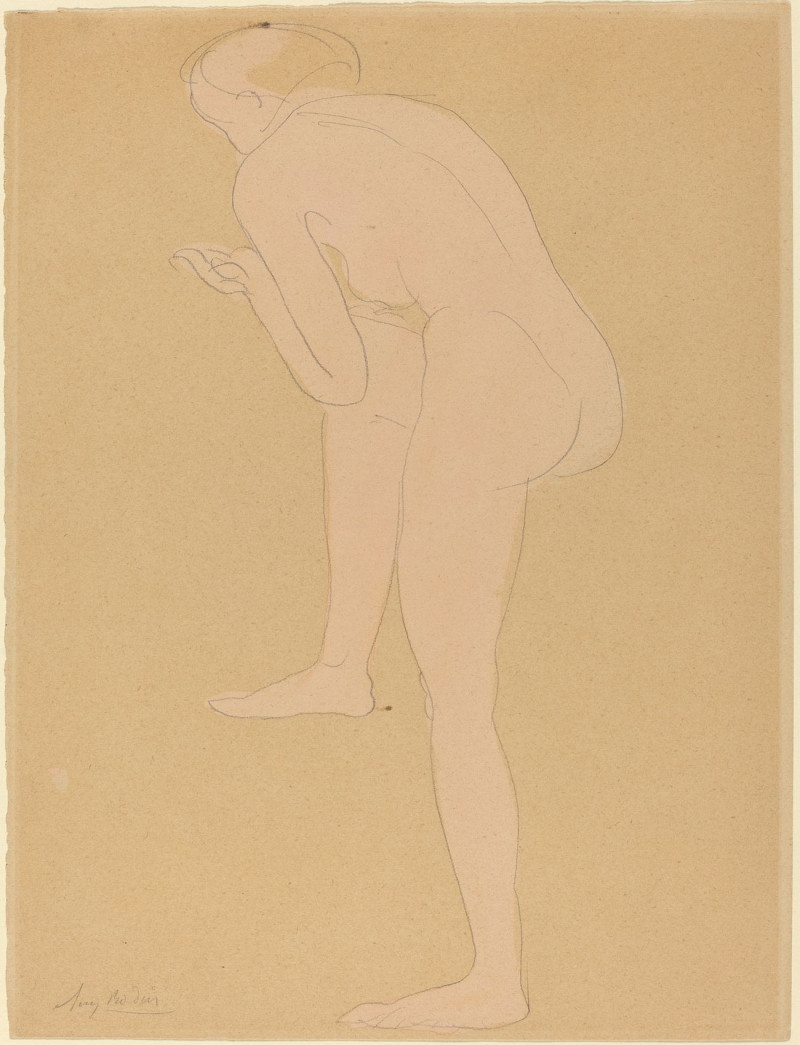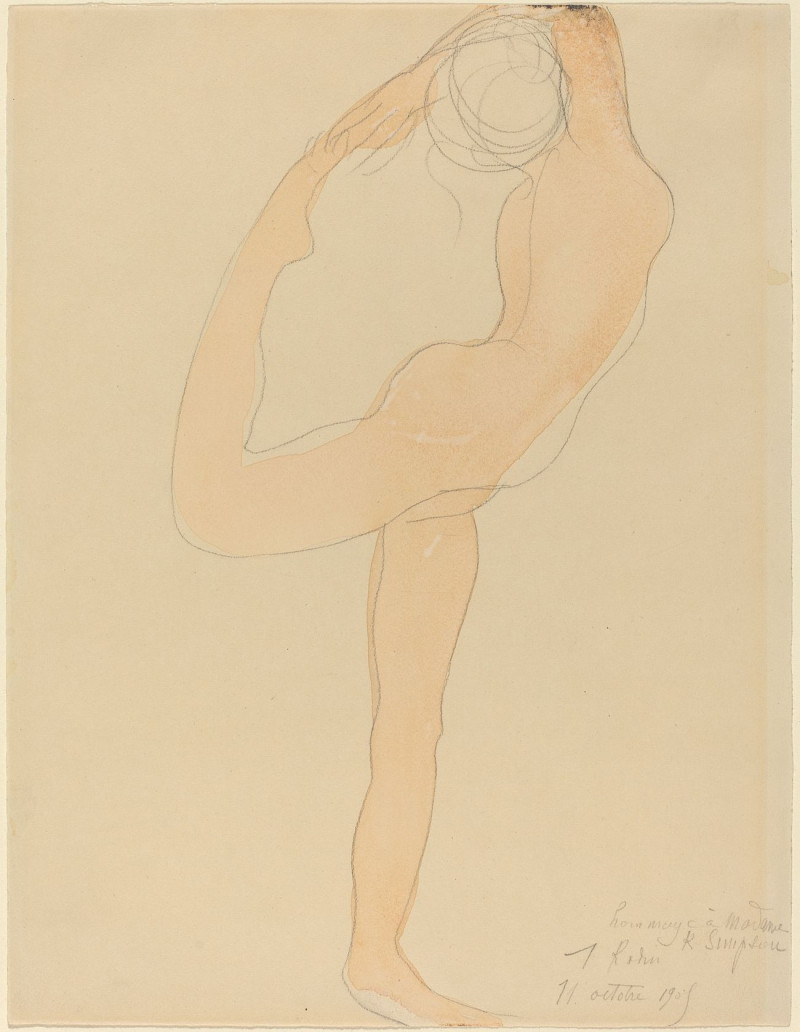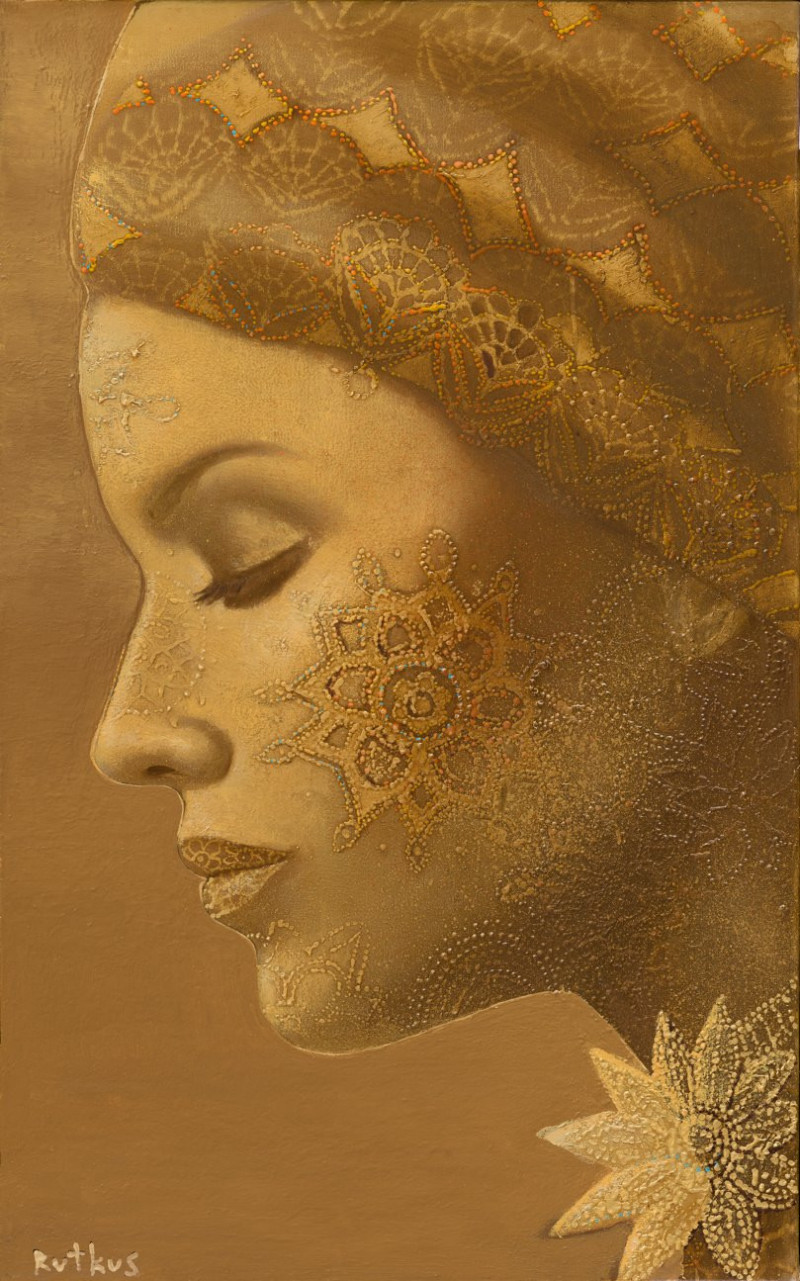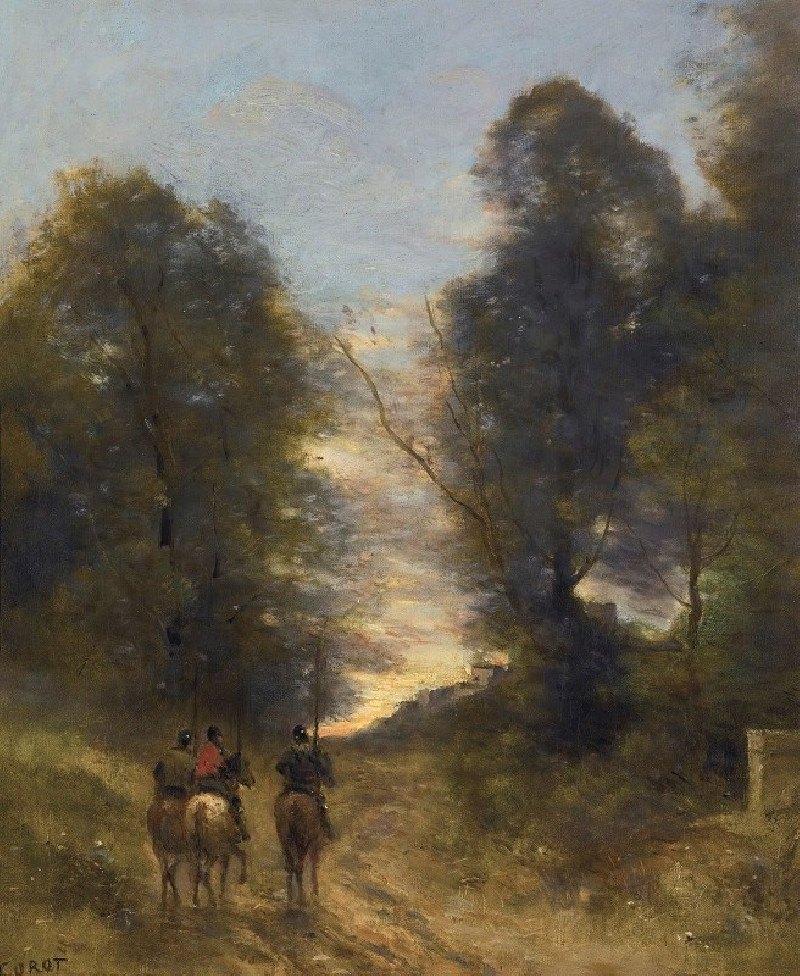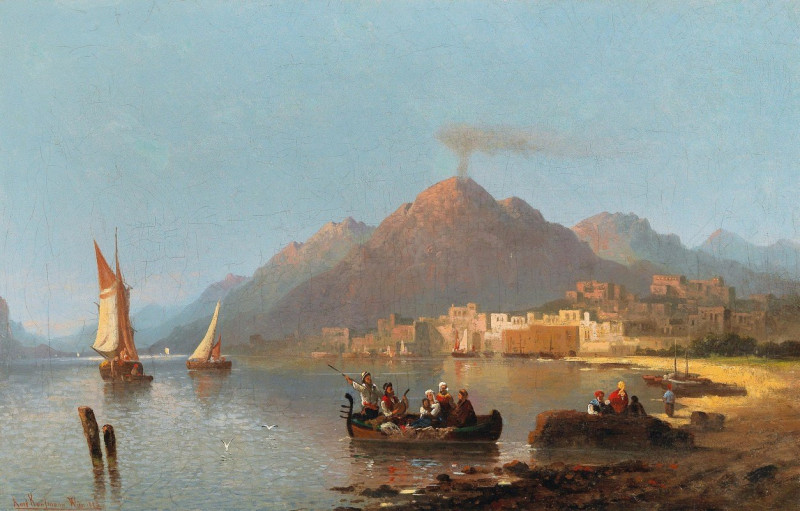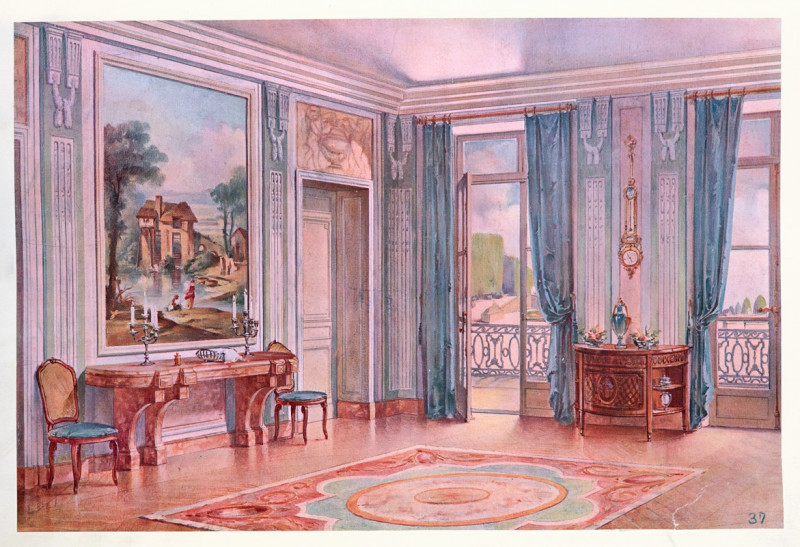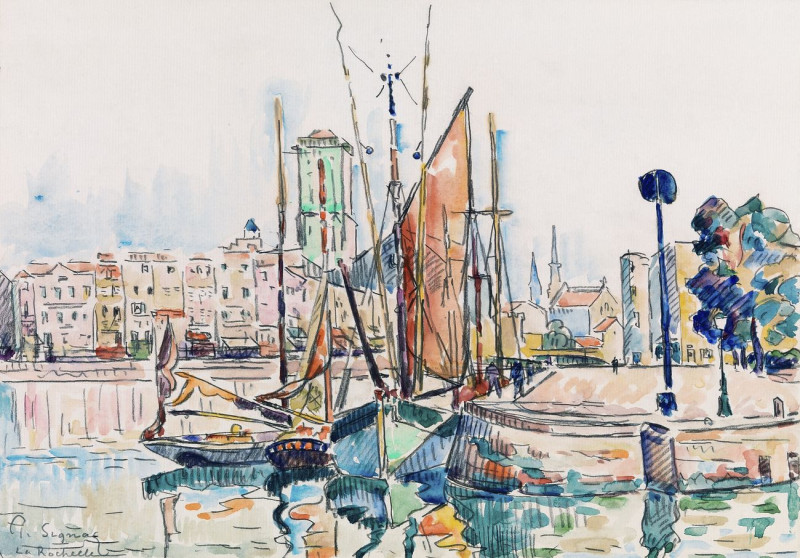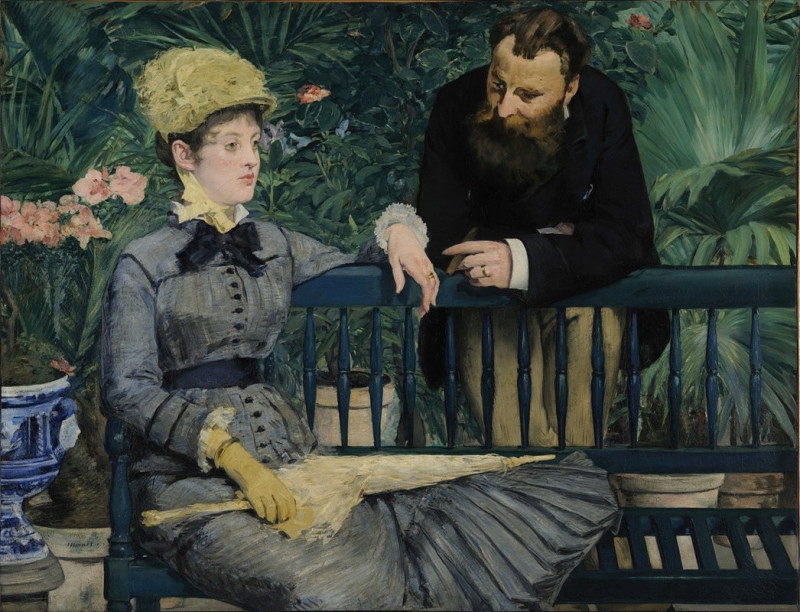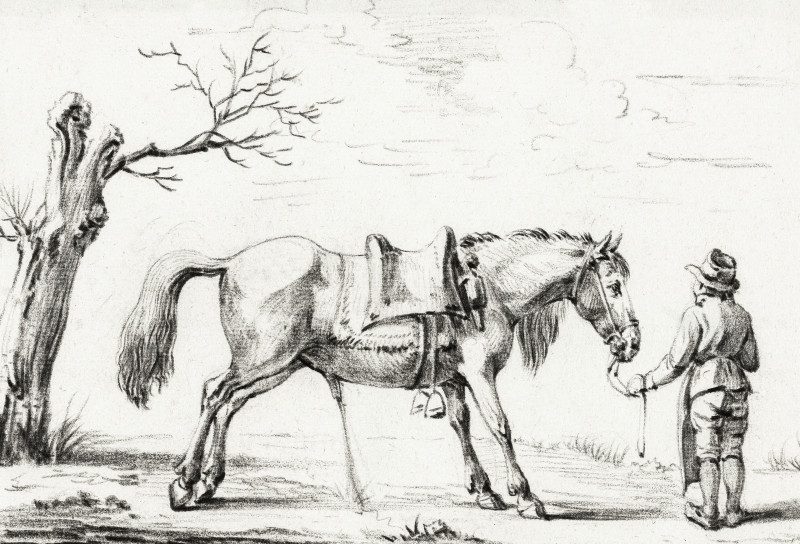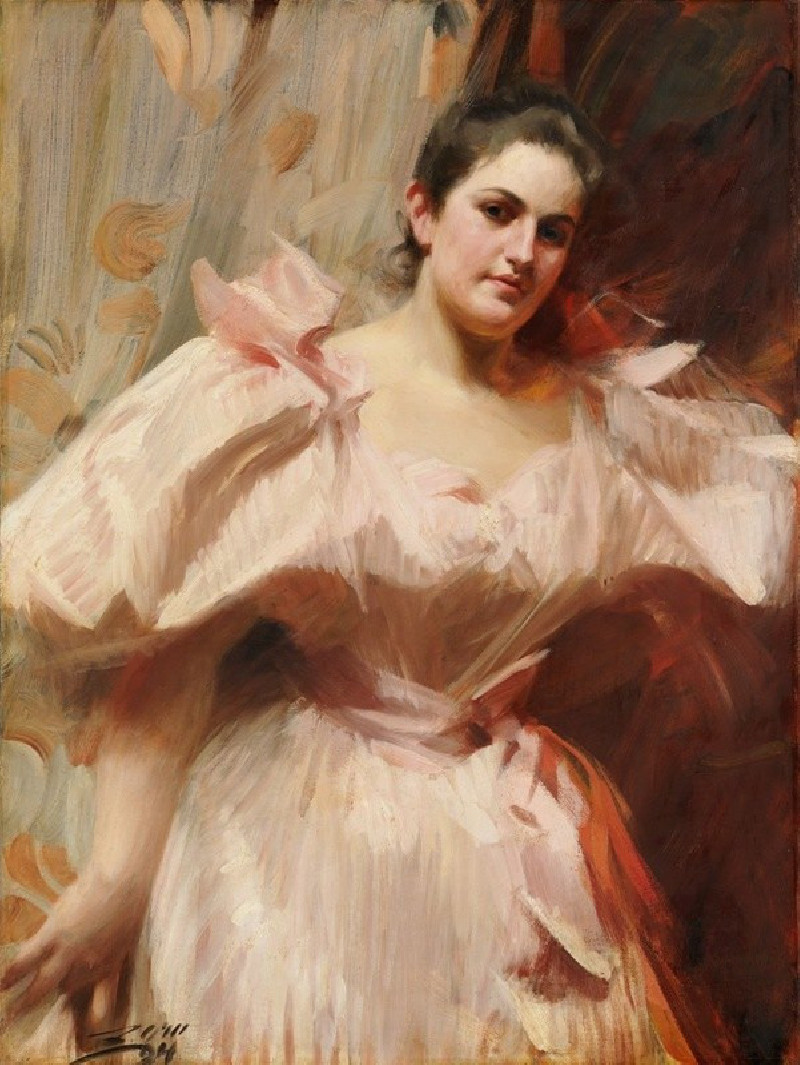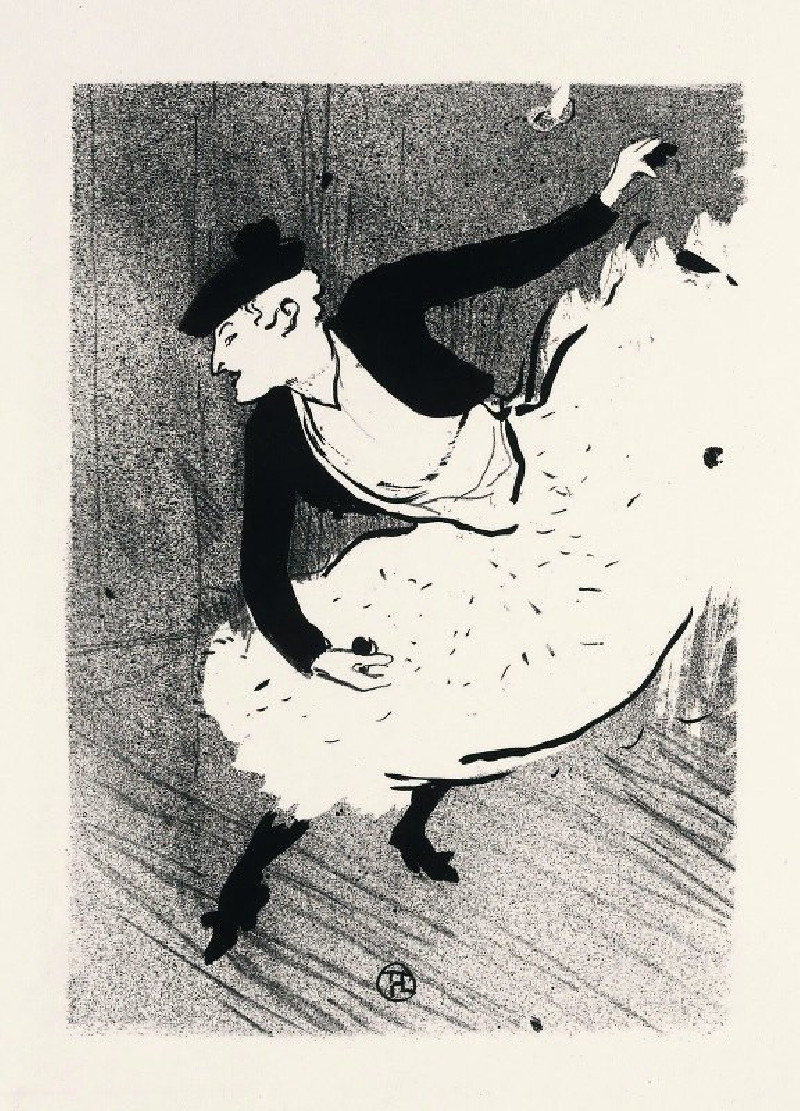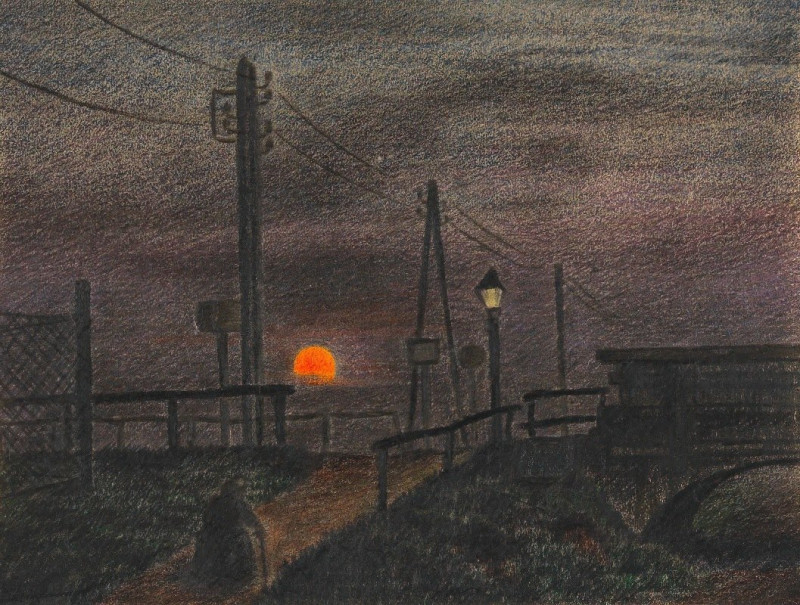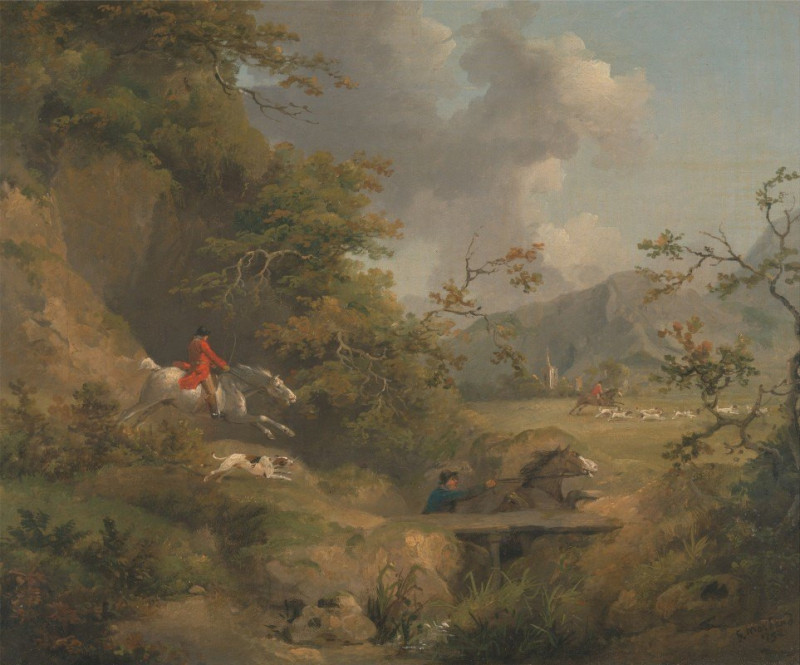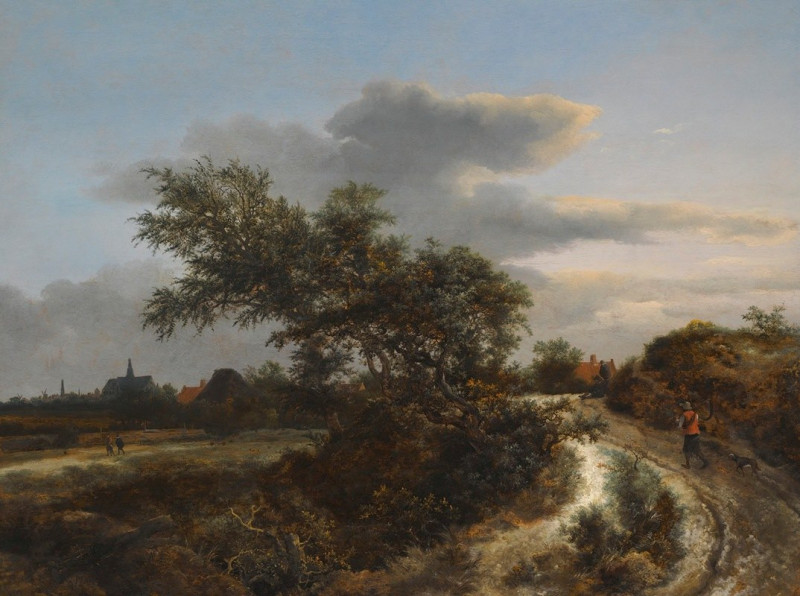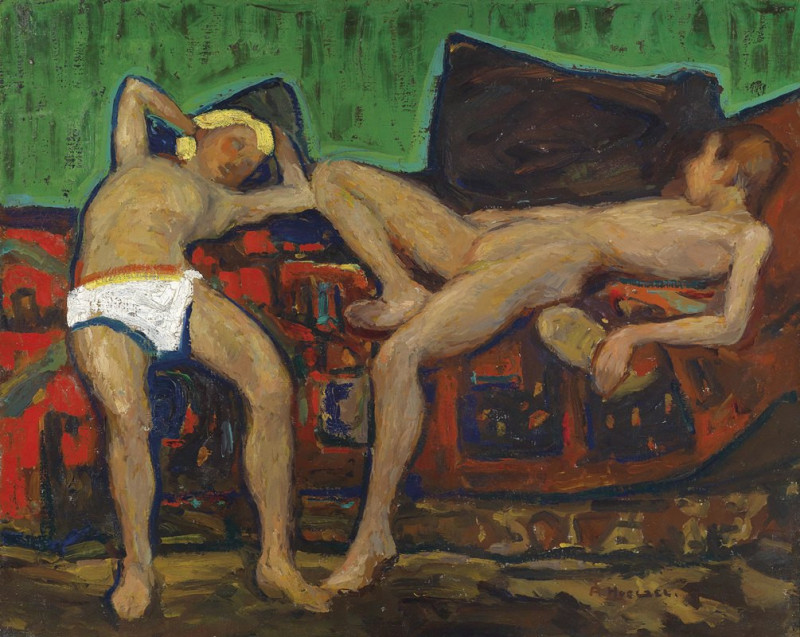L’enfant Prodigue (circa 1880-1884)
Technique: Giclée quality print
Recommended by our customers
More about this artwork
"L’enfant Prodigue" by Auguste Rodin, created between 1880 and 1884, captivates viewers with its poignant illustration of the Biblical parable of the Prodigal Son. Rodin, primarily known for his sculptural work, showcases his adeptness with drawing through this evocative piece, highlighting his versatility and depth as an artist.The artwork is characterized by a raw, emotional intensity that is typical of Rodin's style. The central figures are entangled in an embrace that conveys both desperation and relief. The scene captures the moment of the prodigal son’s return, weary and repentant, as he is enveloped in the forgiving arms of his father. The sketch, made with loose yet expressive lines, instills a sense of movement and immediacy, drawing the viewer into the emotional core of the narrative.Rodin’s use of shading and his controlled yet spontaneous line work create a dynamic composition that makes the figures almost seem to emerge from or recede into the aged background of the paper. The stark contrasts of dark and light not only accentuate the physical forms but also mirror the thematic contrasts of despair and hope, alienation and acceptance.This piece is a testament to the human condition, exploring themes of redemption, forgiveness, and the enduring bonds of familial love. "L’enfant Prodigue" remains a profound example of Rodin's skill and his ability to convey deep emotional complexities through a variety of mediums.
Delivery
Returns
Rodin was born into a poor family. After earning a living through sculpting decorative stoneworks, he entered art school. He then applied a craftsman-like approach to his work and modeled the human body with the naturalism that latterly became his unique style. Considered as the founder of modern sculpture, Rodin's original works clashed with predominant figurative sculpture from traditional themes of mythology and allegory since he celebrated individual human physicality.

